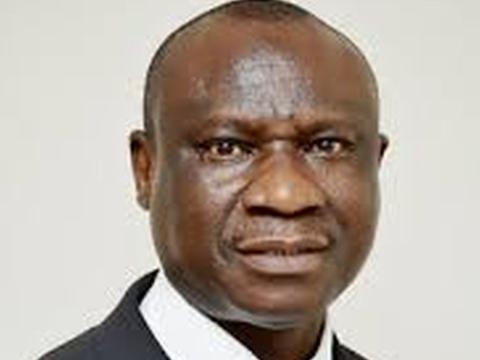By Nasratu Kargbo
Nodding of heads and a resounding applause accompanied with pleasing facial expressions, were all indicative of the appreciation of the Governor of the Central Bank of the Gambia, Buah Saidy as he explained the ways through which they were able to rapidly improve and strengthen their country’s economy and path towards food self-sufficiency.
He was delivering a keynote address at a symposium held to commemorate the Bank of Sierra Leone’s 60th anniversary on the theme: “Repositioning the Bank of Sierra Leone to better deliver on its mandate in an evolving domestic and global environment”.
Saidy said the theme is timely and critical, advising that alternative strategies be adopted to effectively improve the potential of the monetary policy instead of solely relying on traditional tools. He said it is in this context that the Central Bank of the Gambia (CBG) embarked on reforming its monetary policy strategy to feature a more forward-looking monetary policy framework.
He said CBG started off by ensuring that they are autonomous, and reviewed their Act in 2018 in a bid to strengthen their independence, which they used to achieve their long term objectives.
She explained that CBG has modernized their monetary policy framework and adopted the Forecasting for Policy Analysis System (FPAS) which has revolutionized monetary policy making in the bank and formed a significant part of the decision making process. He said this has immensely improved transparency in the conduct of monetary policy.
“The FPAS has strengthened monetary policy, communication anchored inflation exception and reinforced price and exchange rate stability”, Saidy said.
The Governor explained that they were able to reduce the inflation rate from 18.5% in September 2023 to 10.4% in June 2024, noting that with FPAS and the couple of reforms made in the foreign exchange market they succeeded to narrow the spread between the formal and informal foreign exchange market, which according to the Governor supported the stability of their currency and enhanced the credibility of the CBG.
He called on countries in the region to embrace FPAS, stating that it provided them with a robust analytical framework for conducting data- driven monetary policy decision making.
He explained that CBG collaborated with the government to address constraints related to the supply of essential commodities that are fuelling inflation and undermining exchange rate stability such as enhancing foreign currency for traders through commercial banks for the importation of essential commodities.
“CBG supported the government in negotiating the importation of rice such as India at concessional prices. These and other measures ensured an uninterrupted supply of food and essential commodities”, he added.
He spoke of financial inclusion and the many efforts made by CBG to improve their economy, and that the strides paved the way for a gradual decline, which is projected to be in single digit by the end of the year.
Speaking on the long term remedy, Saidy explained that they intend to finance key sectors such as agriculture in order to boost local production.
Highlighting some of the challenges they face at Bank of Sierra Leone, the Governor, Dr. Ibrahim Stevens said they are constrained with transmission mechanism of monetary policy, implementation of monetary policy, skewed nature of liquidity management in the banking system, lack of financial development in the economy amongst others. He stressed that they chose the topics in order to learn and emulate good solutions to improve Sierra Leone’s economy.
Sierra Leone’s Central Bank was formally established on the 4th August 1964.
Copyright © 2024 Politico (05/08/24)








